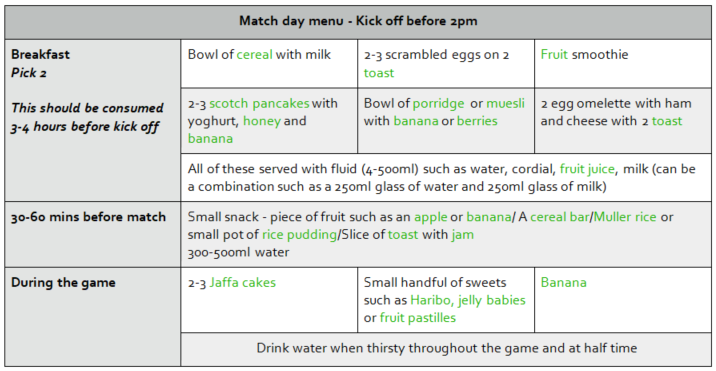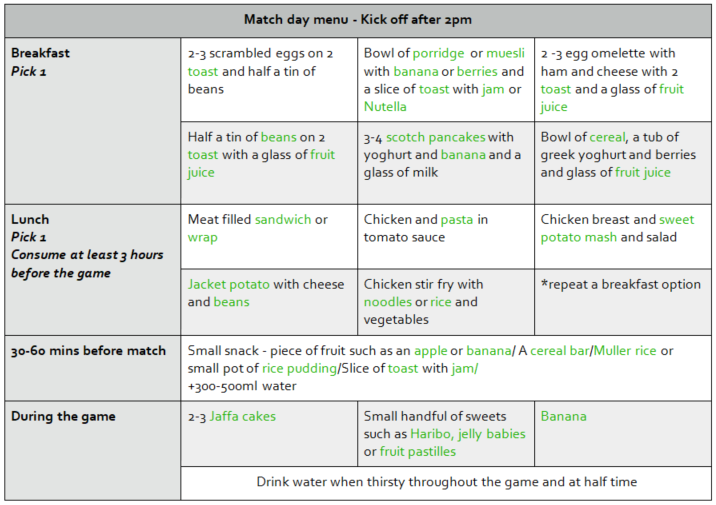By Adrian Hampshire
Question - I'm interested in nutrition for soccer players. What are the recommendations to eat before a game and the timing to eat before and after? Also, what are the eating recommendations when playing a tournament, let's say three games in three days? Thanks.
Good nutrition can have a major impact on the performance of young players when they play their matches. Ensuring they have adequate energy to fuel the duration of the performance is perhaps the most obvious of reasons however the contribution to cognitive processes which affect decision making and reaction time should also not be underestimated.
That said, the football is main thing that a player should be focusing their attentions on when match-day arrives meaning that although the goal of a match day strategy should help provide the muscles with energy and hydrate the athlete, it should also be simple, minimally intrusive and comfortable for the athlete. To ensure it is comfortable it should contain foods that they enjoy consuming but also foods that do not cause stomach upset, no young player wants to be having unwanted trips to the toilet when preparing to play.
There are several key elements that influence on how a match day nutrition programme should look which remain constant. These are that pre-match meals should be;
• high in easily digestible carbohydrates to provide energy for the working muscles. This can come from foods such as breads, wraps, bagels, noodles, pasta, rice, fruits, oats. The young athlete will probably eat a little more of what could be seen as ‘sugary’ foods than on a normal weekday.
• relatively low in fats and fibre as these slow down digestion and absorption of foods which could result in stomach upset as well as slowing down the delivery of carbohydrate. Foods such as steak, salmon, avocado, hummus and sausages are probably a good idea to avoid in the pre -match nutrition menu.
• able to provide fluids in order to hydrate the athlete. A dehydrated athlete may find exercise harder, feel less alert and have slower reactions which may impact on their decision-making capabilities.
• contains some protein from foods such as chicken, eggs, cod, beans, milk, yoghurt. This will help support the recovery process after the game as it will limit muscle protein breakdown.
The variable in the plan would be the kick off time, so below there are two example menu’s. One is for a early kick off and one is for a later kick off time. There is no perfect pre-match meal as each individual will respond differently to foods and timing of foods, however the guidelines below will create a good structure for most athletes. It is always a good idea to trial any pre- match menu plan on a training day if possible. In the table foods that are especially high in carbohydrates (energy will be colour code in green.


By Adrian Hampshire
Is a sports nutritionist (MSc Sports & Exercise Nutritionist) and Teacher of Physical Education located in Yorkshire, UK. I provide nutritional support to athletes from a variety of sports in particularly youth, adolescent and scholarship athletes. @adyhamshire


